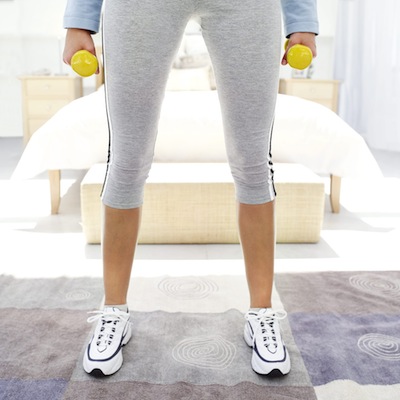Balanced Living
Fat Loss – Sometimes Little Things Can Make a Big Difference
Posted by Arja on February 15 in Nutrition
It’s February, and though many people started the year with the best of intentions, the gyms are starting to be less crowded, and social media declarations of health and wellness are slowing down. Have people suddenly decided that they don’t want to lose weight and get healthy? Not likely, but nothing kills motivation like lack of progress. If you’re not seeing the results you want, don’t give up now! There may be some small tweaks that you can make to your program to help get you back on track.

I encourage my clients to look at the long term with their programs because everyone can go hot and heavy for a month or so, but that intensity can be hard to sustain. Making healthy choices and fitting in exercise are things that you must consciously choose to do. It’s not always going to come naturally for the first while, and that’s ok! It takes 6-8 weeks to really develop a habit, and before this happens it’s easy to lose steam and let the old habits start to creep back in.
The easiest way to get back on track is to look at your nutrition and make sure you’re maximizing your efforts, not sabotaging yourself. What you’re eating, and when you’re eating it, can make a big difference. Here are some easy tweaks you can make that can have a big impact:
1. Eat breakfast. I know, you’ve heard this before, but I can guarantee you that if you’re skipping breakfast and hoping that shaving off a few extra calories will help you lose weight you’re mistaken. After fasting for 8+ hours, your metabolism needs a boost. Skipping breakfast can also lead to overeating later in the day, so watch out. The key to making breakfast work for you, however, is to make sure you’re getting enough protein, and to take it easy on the grains. Opt for a protein shake with a mix of leafy greens, fruit, high quality protein powder, and other delicious add-ins. You could even try some Greek yoghurt with fresh fruit, chia seeds, and 1-2 tbsp of homemade granola and skip the bowl of cereal.
2. Do a sugar detox. There is nothing in sugar that is good for you, especially refined sugar. Honey and maple syrup are nice natural sweeteners that contain antioxidants and minerals, but they still spike blood sugar levels in the same way that sugar does, so use them in moderation. Coconut sugar is a better, low glycemic, alternative if you must add sugar to something. Try a sugar detox, and take a close look at all of your packaged foods, you might be surprised by how much sugar they contain, and how much it is sabotaging you.
3. Stop eating late at night. Ideally, you should be having dinner at least 2 hours before bed, and avoid late night snacking. Your metabolism slows down as your body gears up for rest. Nighttime is for rest and regeneration, and you don’t want your body focusing on trying to digest food when it has other, more important tasks. If you find yourself hungry, or wanting to snack out of habit, try having a relaxing herbal tea instead and replace an old habit with a new one. If you must eat, make it light, and have a little fruit.
4. Watch your portion sizes. I don’t want you to start measuring and weighing everything that you eat obsessively, but you might be surprised by how much you’re actually eating. Do you know what 3oz of meat or fish really looks like, or that your grain serving should only be a ¼ cup or a ½ cup? It all adds up really fast. Think of the size of your stomach, and I mean the actual organ, not what you look like from the outside. It’s small, and if you’re regularly eating more food than you can fit into your two hands held together like a bowl, than you’re probably eating too much.
5. Make sure you’re drinking enough water. Dehydration can not only trick your brain into making you think you’re hungry, but it can make you tired, slow down your metabolism, cause constipation, and stop your body from flushing excess toxins from your system. Also, for every cup of coffee, tea, or other caffeinated beverage you drink, you should plan on replacing the liquid you’re going to lose with 1-2 cups of water. Herbal teas make a great substitute for a glass of water and are delicious both hot and cold. Adding cucumber and/or lemon slices to your water can also make it taste more interesting and add nutritional value as well. Aim for 8-10 cups per day, and remember you’ll need more when exercising or in hot weather.
It’s not just about the number on the scale, it’s about how you feel too. Your goal should be to eat in a way that makes you feel energized, vibrant, and happy. There is no magic formula for weight loss as we are all different. So if you think you’re doing all the right things (nutrition, exercise, relaxation) and you’re still not seeing the results you would expect, it might be time to take a look at other factors that could be slowing you down.



